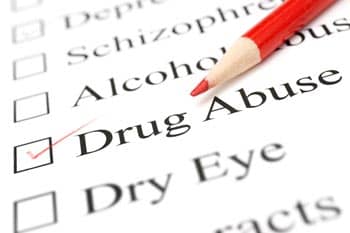First Important Step in Treatment
Even though detox is a necessary step in most treatment processes, medical detox may not always be required. Assessing the person’s condition is important to determine the exact service best suited to them. In some situations, medical detox becomes necessary to ensure the well-being of the individual undergoing this process. Severe physical dependence and withdrawal symptoms can pose significant health risks. As well as, individuals with medical conditions may be at a higher risk during withdrawal.
Medical detox provides a controlled environment where healthcare professionals can monitor the individual’s withdrawal and avoid any complications.
Several factors contribute to the decision to opt for medical detox.
Heavy Alcohol Use
Someone abusing heavy amounts of alcohol for some years will usually require a medical detox. When a person attempts to stop their alcohol consumption, they can have severe episodes of delirium tremens or DTs. These DTs can be very disturbing and life-threatening. According to Medscape, the mortality rate from severe alcohol withdrawal and DTs was as high as 20%. Early detection and treatment have lowered the fatality percentage to 1 to 5%.
Delirium tremens, also called DTs or alcohol withdrawal delirium (AWD), is a severe type of withdrawal from alcohol. It can occur for those with a long history of heavy alcohol consumption. It typically manifests within 48 to 72 hours after stopping alcohol intake or a significant reduction in its consumption. Delirium tremens is considered a medical emergency, and immediate medical attention is essential. Profound confusion, hallucinations, tremors, and other physical symptoms characterize it.
During Alcohol Withdrawal
A person can exhibit various stages of psychosis and can require mild sedation while detoxing from heavy alcohol use. Also, there is other medical monitoring needed. Is the person’s liver and kidneys functioning correctly or damaged by alcohol to the point of non-function? The person’s blood pressure might be too high or too low and need surveillance. All these factors must be taken into account when dealing with the withdrawal of severe alcohol abuse.
Polydrug Users & Detox
Most polydrug users require medical detox. When a person abuses different street drugs mixed with alcohol or combines alcohol with prescription medication and other drugs, medically supervised detox is mandatory in many cases.

Mixing Prescription Medication with Recreational Drugs
For example, a person taking Xanax as directed but misusing any recreational drugs like Percocet may need this service. Generally, street drugs are easier to withdraw from than synthetic prescribed drugs.
In some instances, people wanting to come off methadone will experience many unpleasant side effects. It does require, by all means, medically supervised detox to wean the person off slowly.
Withdrawal Symptoms
The withdrawal of some drugs can cause severe aches and spasm with muscles and bone pain, with a very bad “headspace.” Withdrawing can be life-threatening if the dose is high and taken for an extended time. Increased anxiety and even seizures can occur during the detox period. Also, withdrawal becomes more complicated with a physical ailment, whether one takes prescription drugs or not. The assessment is a vital part of drug or alcohol rehabilitation.
Medical Detox Hospitals and Centres
Medical detox is to prevent worsening health conditions. It also helps overcome the withdrawal effect or symptoms during the treatment. Most medical withdrawals will last, on average, between 5 to 10 days with constant supervision and monitoring of vital signs by trained medical professionals. After this step is complete, most centres encourage their clients to enter a drug rehab centre. Detox is not an end-all treatment for addiction but a first step. Most good hospitals have this service. Private centres also offer the service and have no waiting list and personalized care.
Looking for Medical Detox Centres
If you are unsure whether a medical detox is necessary or would like to locate a private treatment facility, call or request a callback. Speak with one of our experienced referral counsellors. They can answer your questions and advise you on the best treatment approach. They will guide you to the proper service.
Not everyone requires this step of recovery from their misuse. However, those with heavy alcohol consumption and people with polydrug abuse usually need medical attention while detoxing. Individuals with medical conditions will also need professional observation during any program. If you don’t know if you need this service, speak with our treatment referral counsellor for guidance.




